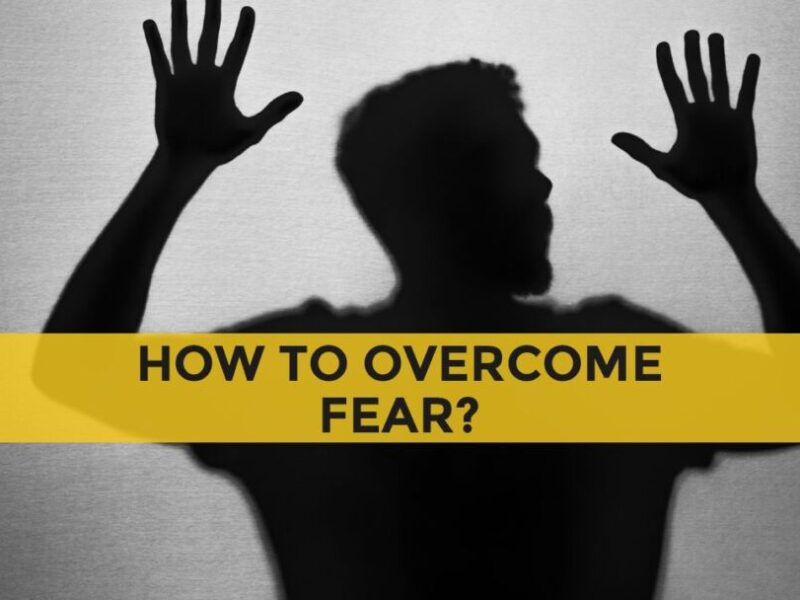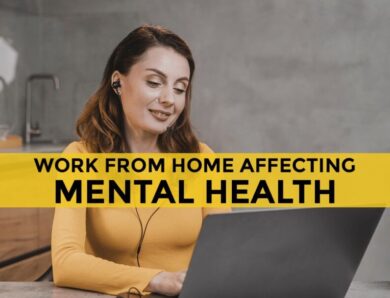
How to Overcome Fear – 9 Effective Ways
We all have fears, whether they’re big or small. The difference is that we don’t always recognize them as such. In this article, I’ll explore ways to identify your own fear and then learn how to face it head-on so you can learn ways how to overcome fear.
Ask yourself, “What would I do if I weren’t afraid?”
What would you do if you weren’t afraid?
Would you be willing to take on a challenge, no matter how far-fetched it might seem?
or, would you be excited about the next step in your career or personal life?
or, would you fear holding yourself back from opportunities that could change the course of your life for good?
The first step towards eliminating fear is recognizing its presence and understanding why we feel it. The second step is taking action against our fears by asking ourselves these questions: “What would I do if I wasn’t afraid?” And then choosing one option at a time until they become habits (or until they lose their power over us).
How to overcome fear?
1) Being aware
You need to recognize that you are not alone, nor do you have control over your fear. Fear is an emotion and it has a purpose: to protect your body from danger or pain, such as pain caused by cutting yourself with a blade or getting hit by a car, for example.
Now that we’ve identified our enemy, we can take steps toward eliminating it from our lives! There are several ways this can be done.
Recognize triggers for the fear reaction (e.g., seeing blood). Triggers help us remember why we feel afraid when we encounter them again later on in life. So if there’s ever been something traumatic that leads back into those emotions again, like seeing another person get injured while playing sports at school, then try not acting upon those feelings right away. But instead wait until after they pass like any other period of time before acting on anything else related to them (i.e., “If I’m feeling stressed out today due to my workload… maybe I’ll just go home early?”).
In addition though sometimes just knowing what triggered this reaction might help reduce its frequency altogether because knowing why certain things happen makes sense now isn’t always enough though! It still may help if others understand what happened behind closed doors between the two parties involved before proceeding forward into other topics such as politics etc;
2) Learn to breathe properly.
Breathing can be a key part of anxiety and fear. Anxiety is characterized by shortness of breath, difficulty breathing, chest pain, and palpitations (heartbeats). Fear occurs when you feel that your life is in danger or your safety is threatened.
The simple act of breathing properly helps calm you down, allowing you to think clearly. It also helps promote sleep because it relaxes muscles throughout the body including those around your heart; this will help reduce stress levels at night time!
You can learn pranayama and meditation techniques as well.
3) Take baby steps in an appropriate, safe environment until you can build momentum and confidence.
As you take baby steps, it’s important to be patient and kind to yourself. Don’t think about how far you have to go—just focus on the next step. Keep moving forward, even if it feels like there’s no way that you’ll ever be able to do it!
Take care of yourself by doing things that make you happy and feel good: exercise, eat healthy foods (high in protein), and get enough sleep at night so that your body can recover from stress during the day.
4) Assemble a support system
As you begin to make progress, it is important to continue to build your support system. This can mean asking for help from friends and family or speaking with a professional. If you have difficulty affording therapy on your own, consider joining a support group as well as reading books on the subject such as Overcome Fear: Strategies For Eliminating Fear and Overcoming Fear: Eliminating the Bondage of Fear
5) To overcome fear, be social
Socializing is a great way to overcome fear. When you’re with other people, you’ll feel more comfortable in new situations. And you will be able to build confidence in yourself. You can also learn skills and meet new people as part of this process.
Socializing helps us feel better about ourselves because it allows us to connect with other people who are like-minded, which makes them more likely to accept our differences (like being introverted or extroverted) than if they were just strangers who didn’t know anything about us.
6) Dedicate yourself to an interest or cause outside of your everyday life to overcome fear
It’s important to find an interest or cause that is outside of your everyday life. When you involve yourself in something, it helps you to overcome fear and make you feel more confident in yourself.
- Find a cause that interests you. If there’s something about the world that fascinates you, try to find out what it is! You may even be surprised at how many people there are who share this same interest with themselves—it just takes time and effort on their part as well!
- Find a cause that is important to someone else (or multiple people). If there isn’t anything particularly interesting going on in the world right now but everyone knows about it anyway then maybe we should start thinking about doing something about those issues instead. There are lots of different ways we could go about solving these problems without having any direct involvement ourselves; maybe instead of worrying so much about ourselves, we should focus our energy on helping others fix theirs first.
7) Strengthen your relationships and reach out for help when needed
It is important to have a supportive network in your life. This could be family, friends, or a therapist you can talk to about any problems that might be bothering you. You should also consider joining a support group for people who are going through similar experiences as yourself. This will help keep you from feeling alone when things get tough and it may even inspire new ways of thinking about old problems!
You should also consider finding a mentor or coach who has experienced what it’s like before so they can give advice on how best to deal with certain situations in your life.
8) Face your feelings instead of avoiding them to overcome fear
Fear is a natural human emotion. It can be an important and useful motivator, or it can stop you from taking action.
Fear is a warning signal that something is wrong, such as danger or pain. If you are afraid of something, then your body will prepare itself for defense against this threat—your heart rate increases and adrenaline flows through your bloodstream to heighten awareness and alertness. When faced with fear in life situations, try not to avoid facing it head-on; instead, face it head-on!
9) Don’t be afraid to fail
Fear of failure is a common fear, but it’s not the end of the world if you fail. Failure is part of life and can be your teacher as much as success can be yours.
If you are afraid to try something new because you’re afraid that it won’t work out, then what will happen? You’ll never learn anything! You’ll always stay stuck in your comfort zone where there’s no room for change or growth because everything has already been done before (and done right). When we feel comfortable with our routine, we stop trying new things—and that means we stop growing!
But if we refuse to accept failure as part of life’s lessons and instead view it as something bad or personal fault, then our progress will stall out sooner than later because every time I’m fearful about failing at something new or different from my current job role at work–I hesitate or give up pathetically before even trying…
There are many things we fear, but if you can identify the fear, you can take steps to beat it

Fear of the unknown is a common fear that many people face, but it doesn’t have to be this way. In fact, if you can identify the fear and accept that it’s just an emotion. Then you can take steps to beat it.
There are many things we fear:
- Rejection from others (including friends),
- Failure at work or school, success in sports/games, etc.,
- Being alone without anyone else around us, or even trying something new because we think there will be no one there for us when things go wrong or don’t work out as planned.
The list goes on!
Conclusion
I hope you’ve found this article helpful. I know that the most difficult part of facing your fears is taking the first step. But it’s important to do so if you want to live a happy life.





